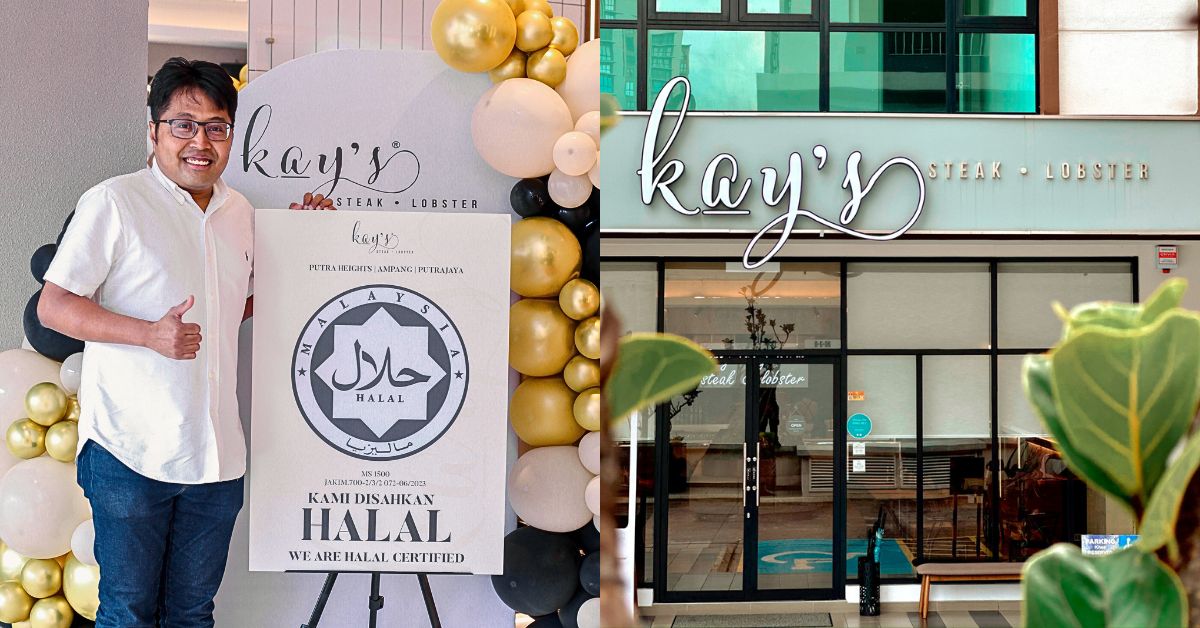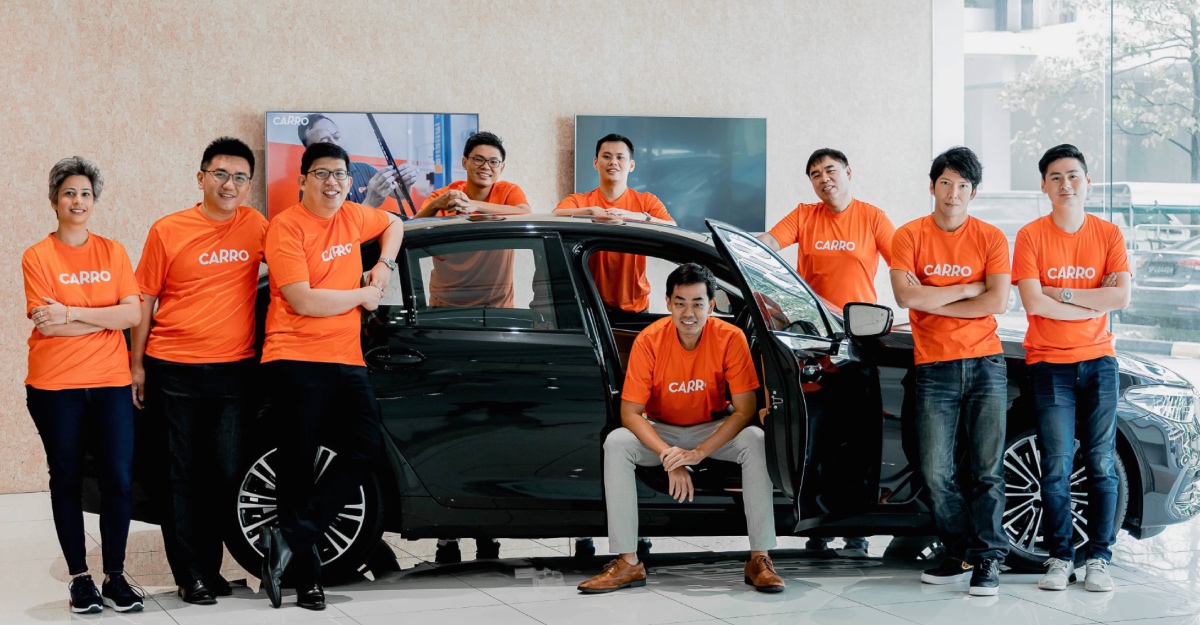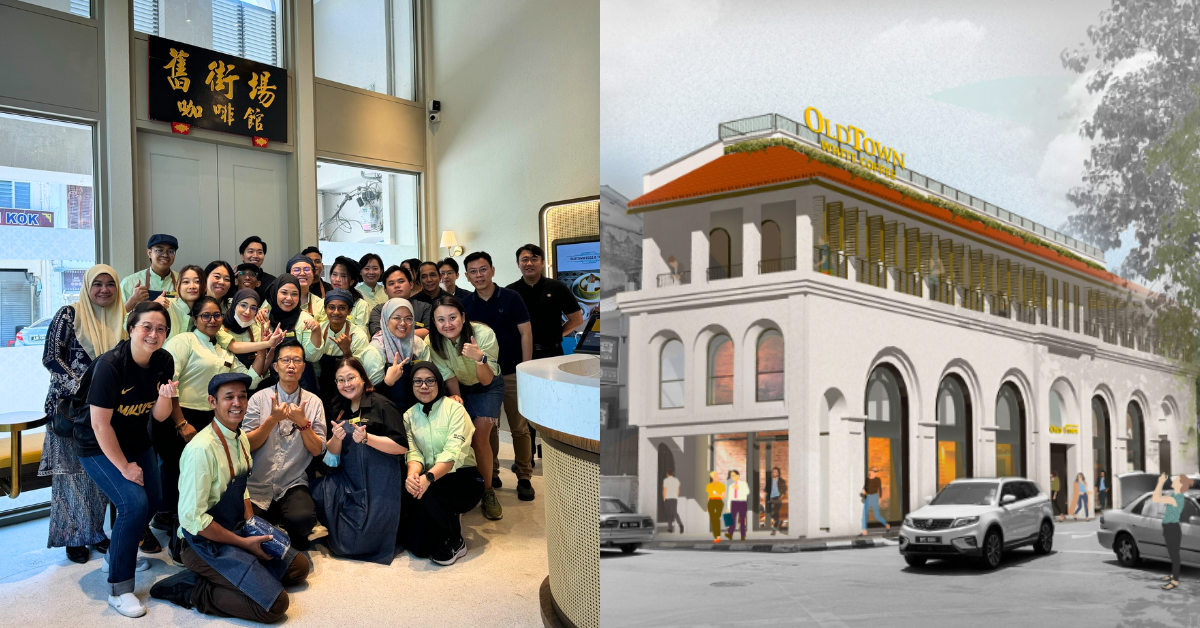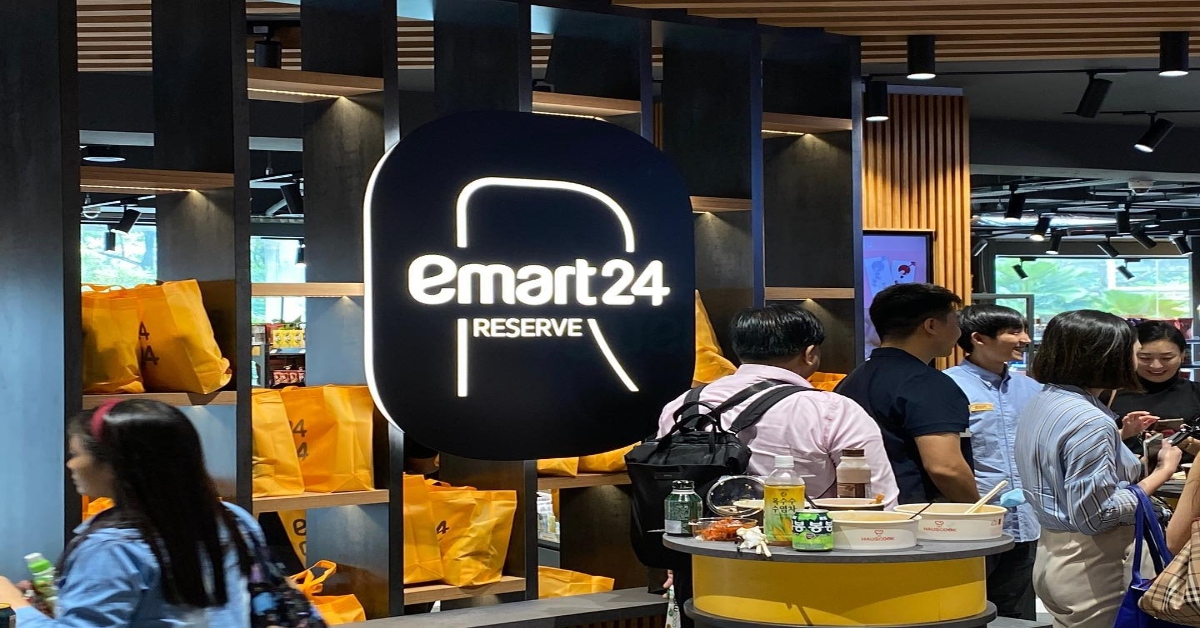Caecilia Chu hurried into the Hive co-studio looking slightly flustered. She was half an hour late for our 9am interview, and was clearly breathless.
She had just climbed up six flights of stairs because the lifts were temporarily down. In between big breaths, she profusely apologised for her lateness, complete with a 30-degree bow.
The interview was initially scheduled at 10am, but she had requested to start an hour earlier so she felt that her tardiness was inexcusable. After a relentless exchange of “I’m so sorry” and “it’s okay, don’t worry about it”, we finally started the interview proper.
Caecilia is the co-founder and CEO of YouTrip, a homegrown fintech startup that is dedicated to simplifying overseas spending for travelers.
Their star (and only) product is a multi-currency mobile wallet with a prepaid Mastercard, which allows users to pay with no fees in over 150 currencies at wholesale exchange rates.
With this single card, it’s not an understatement to say that she has helped revolutionise the payments landscape in Southeast Asia. But how did she get to where she is today?
Asian Parenting: “Education Is Important”
Born and raised in Hong Kong, Caecilia hailed from a “poor” family background — her father worked as a postman, and her mother was a kindergarten teacher.
Both her parents didn’t earn much, so her family of four — including her younger brother — lived “month to month”.
“My parents never had the opportunity to really study, so they taught me the value of education (and) the value of hard work. Although I grew up from a pretty common background, they taught me that education is important — it will change your life.”
– Caecilia Chu, co-founder and CEO of YouTrip
Caecilia spent 13 years in government-funded girls’ schools in Hong Kong. She studied hard, earned good grades, and scored a prized scholarship to the United States to further her college education.
She applied to the Wharton School of the University of Pennsylvania — a private Ivy League university with notable alumni such as Donald Trump, Elon Musk and Warren Buffett.
With the acceptance letter in hand, she moved abroad alone to study finance. She spoke very little English at the time and had difficulty adjusting to the American culture, environment and language.
When she graduated in 2005, it was the “boom year for Wall Street.” Like every other Wharton graduate, Caecilia went on to work in the finance industry with stints in Merrill Lynch, McKinsey & Company, and Citi.
She had joined finance “at the peak” but four years later in 2009, everything crumbled. It was the global financial crisis — she witnessed the rapid decline of stock prices and the fear of her company going bankrupt became very real.
Much like the tens of thousands of other Citi employees, she had no visibility as to what was happening — “we were all in the dark,” she recounted.
That very experience “stuck” with her, and she figured that it was an opportune timing to take a two-year hiatus from the finance world.
The Silver Lining Behind The Global Financial Crisis
The 2009 financial crisis however, can be seen as a silver lining — it helped Caecilia get enrolled to another Ivy League: Harvard Business School.
She was originally waitlisted but during that financial crisis year, there was an overwhelming number of applicants. The school eventually expanded the class, and she got in.

According to her, many of the students in her year became jaded with the idea of the traditional corporate route and climbing the ladder.
If there’s anything that they could take away from the financial crisis, it’s “to take things in your own control,” she said firmly.
It’s no surprise then why many of her classmates, such as Grab co-founders Anthony Tan and Tan Hooi Ling, as well as Gojek co-founder Nadiem Makarim, went on to start their own business ventures after graduation.
Today, these “super entrepreneurial” friends of hers have successfully grown their companies into regional unicorns.
What they have done has really inspired me to look for opportunities in regions where it’s quickly emerging but at the same time, it’s not as obvious as an opportunity compared to China or India, where it’s already booming in terms of (emerging) companies and investments.
Some of my classmates have started this journey of their own, and I knew how hard it was. Back then, there was no venture environment for this part of the world so seeing them succeed was greatly inspirational.
– Caecilia Chu, co-founder and CEO of YouTrip
However, the primary driver of why she kickstarted her own startup was her father, whom she inherited the “risk-taking mentality” from.
“I have always wanted to start my own startup. My dad had nothing. He didn’t go to any of the good schools or were trained at good companies, but he still dared to try. So I felt like if my dad who doesn’t have much savings to start with can do it, why can’t I?”
The Reality Of Running A Business: Even Making $1 Is Difficult
Caecilia went on to rope in her friend, fellow Hong Konger Arthur Mak, as a business partner.
The two had met a decade ago in Boston when he was still studying at the Massachusetts Institute of Technology (MIT), which is just a river across from Harvard.
“He is literally a rocket scientist (and) a hardcore engineer,” described Caecilia. With an aeronautics engineering background, he has worked for NASA and GE Aviation, and was most recently the former product lead at WeChat.
In 2012, they started an e-commerce business together that targets children between zero and seven years old. The venture turned out to be a flop, lasting only two years.
When asked why the business failed, Caecilia wistfully said that the laundry list of reasons was simply too long and she couldn’t pinpoint the exact cause of failure.
Nevertheless, she sees that two years as a “humbling journey.” She admitted that her life had always been smooth-sailing, be it in terms of academic or career.
This speed bump however, made her realise that she knew nothing about business. The time spent at two of the best business schools in the world and best firms couldn’t even make up for it.
The core question is, how do I convince customers to buy anything from me for $1? Why (should) that person need to spend their money on my product?
Even making $1 is difficult, so my biggest learning was that I needed to really ask myself: What value do I bring to customers who have thousands of choices on every single category of things? What value do I bring to them?
– Caecilia Chu, co-founder and CEO of YouTrip
Besides the lack of business experience, she felt that her credibility as a startup founder was also non-existent.
When she worked in big-name firms, she had the company branding to support her. She was seen as a trustworthy and smart individual, but she had none of that when she started from scratch.
No one cares, no one listens — it was a completely different story when I knocked on the door for somebody else. (Truth is), I’m the exact same person. I know what I know, and I can do what I can do.
– Caecilia Chu, co-founder and CEO of YouTrip
Finding The “Missing” Piece In Silicon Valley
The business failure was clearly a bitter experience and it made her feel like she was “terrible” at it.
But the thing about Caecilia is, she’s a hustler. She sees herself as someone “adventurous” and a risk-taker. Whenever she’s presented with an opportunity, her answer is always a definitive ‘yes’ — even if she doesn’t know how to do it, she’ll find a way to figure it out.
That’s exactly what her “soul-searching” trip to Silicon Valley was about. She wanted to find out if startup life was right for her, and to find what’s “missing” in her character, experience, or knowledge that caused her to fail.

With no concrete plan in mind, she flew to Silicon Valley and ended up working in a Series A company which had only 23 people, including herself. Since it was such a small company, she had the chance to work closely with the founder and observe how he built the company from the ground up.
In her role as enterprise sales, she also got acquainted with all sorts of companies — from big ones like Facebook, Airbnb and Uber, to under-the-radar startups.
Having had a taste of what Silicon Valley is like, she wanted to also experience Zhongguancun in China, which is dubbed the Silicon Valley of the East.
I wanted to be in a space where I’m early — not late, or even at the right time. I felt that Asia was able to give me that opportunity, but not Silicon Valley.
Silicon Valley … is super competitive. If you have a good idea and launch it, very quickly, you will have 100 other companies also doing the same thing. The key is, I want to go (to a place where) the opportunity is not fully realised or tapped on.
– Caecilia Chu, co-founder and CEO of YouTrip
In China, she dabbled in fintech, taking on roles at Lufax, China’s leading online wealth management platform and QF Pay, a Sequoia China-backed global mobile payments company.
Comparing the ecosystem in Silicon Valley versus China, she said the latter is very different, mainly because it’s dominated by BAT (Baidu, Alibaba and Tencent).
“A lot of the startups there become a partner in either one of these three, or all three ecosystems. This tells me that the structure has become quite mature already.”
“While the learning (there) was exciting, I wanted to find an opportunity where it’s not as well-set, where the outcome is still (up in the air). So that’s why I felt Southeast Asia is really where I should be.”
A Second Shot At Being An Entrepreneur
As such, she flew back to Hong Kong, regrouped with Arthur, and started up fintech company You Technologies together in 2016.
And yet again, her father was the motivation behind this second business.
When her dad was about 35, he wanted to get a bank loan of about US$12,000 to start his own accounting business. He went to all the banks in Hong Kong, but was rejected by every single one of them.
Hong Kong has one of the highest bank to people population, with over 140 banks and a 6 million population. So growing up, I have a worldview where mass market consumers are always underserved by banks, whether or not they are banked.
– Caecilia Chu, co-founder and CEO of YouTrip
That is what made her so sure about delving into the fintech space. Moreover, after being in the startup space for almost eight years, Caecilia said it feels like “she had come full circle”, finally rounding back to what she knows best.
Regardless, she’s more careful diving into her second business and laid out some criteria to follow.
The first one is to pick something that I’m early in. In e-commerce, I felt that I’m 15 or 20 years too late to build an impactful business in that space. There are (already) so many tremendously successful e-commerce players around the world, and it’s truly not the right time to start something so late.
The second thing is to not start something easy that I can fully see through. The entry barrier is often times too low, so it’s probably not worth the time. When my e-commerce business (gained) traction, my competitor started a similar e-commerce site in just three weeks. (When) others can replicate your business too fast, it’s totally not worth doing.
I rather pick something difficult to do. The entry barrier must be so (high) that I should have at least six months of runway so (it’s harder for) people to copy me.
– Caecilia Chu, co-founder and CEO of YouTrip
When asked to describe the early days of You Technologies, without missing a beat, Caecilia exclaimed that business was “slow”.
Even when she elaborated on her reply, she repeated “slow” for another six times. That’s the only word that comes to her mind, she said with a laugh.
The simple explanation is, “there was no business.” The slightly more elaborate answer is that they were struggling to find their footing and settling on an idea that works.
Every day feels the same; nothing is happening. We have no product in the market, and we don’t have customers. Occasionally, we (get out of an) insightful meeting, (feeling that we) learnt something. Because we’re not from payments, we actually learn everything from scratch.
– Caecilia Chu, co-founder and CEO of YouTrip
YouTrip Is Like A 24/7 Money Changer In Your Pocket
That stagnant feeling lasted for a good year, until the launch of YouTrip in August 2018, which served as a monumental turning point for the company.

Caecilia gave the credit to Arthur for coming up with the original product idea, which started the ball rolling for them.
One key learning Arthur shared with her from his role at WeChat was that when coming up with a product, they have to first “find a high frequency use case that is very sticky and super focused.”
They started looking into payments and figuring out what are some consumer pain points that need to be resolved.
Before we started, we commissioned a marketing company to find us over 100 people to interview. We would call or meet them to discuss their financial concerns and relationship with banks. We were trying to understand what’s in the consumer’s mind in the most unfiltered way.
Through the hundreds of interviews, we realised that the moment when someone crosses the border, they are automatically unbanked. You don’t know whether your ATM card would work, or if you’ll have enough foreign currencies.
– Caecilia Chu, co-founder and CEO of YouTrip
Similarly, when an individual travels overseas, they often make sure that they plan their budget in advance and change sufficient money before the trip. While credit cards are a good cashless alternative, users are often turned off by its bad rates.
Moreover, they don’t even know how much they are paying in forex when they swipe the card; they only know the charges when they receive their bank statements at the end of the month.
As frequent travelers themselves, both Caecilia and Arthur deeply resonated with this pain point. Caecilia in particular, have been traveling for work every single week for the past decade or so.
So that’s exactly why they came up with YouTrip — a simple product that creates significant value for the consumers.
With this single card, it’s literally like “carrying a money changer in your pocket,” said Caecilia.
The excitement when she talks about YouTrip was clear to see as she started ranting about its benefits: no registration or annual card fees, zero bank charges on overseas spend, 24/7 in-app money changer and easy expenditure tracking.
Her affection for the brand comes as no surprise because YouTrip received great response from the get-go. The app saw 10,000 downloads within a week of launch and by the end of 2018, that number more than tripled.
On the back of this very strong momentum, YouTrip steadily gained investors’ confidence. Within nine months of launch, it secured a record funding of US$25.5 million — the largest pre-Series A fintech funding round in Southeast Asia.
Caecilia could only count her lucky stars because it was an oversubscribed round — they had actually raised more money than they originally intended.
How YouTrip Convinced The Big Boys To Work With Them
According to Caecilia, one of the two key reasons why they quickly gained traction is because they are an “early mover in the space”. YouTrip is in fact, Singapore’s first multi-currency travel wallet.
Secondly, striking a strong business partnership is critical — who you work with can make or break the business.
In our line of consumer fintech, I’ve always felt the core (need) to earn customers’ trust and build on our credibility in the market.
There’s no lack of interesting ideas or technology, so all the disconnect comes from the lack of trust from consumers. It’s hard to convince someone to put their hard-earned money into an e-wallet to try (us) out.
– Caecilia Chu, co-founder and CEO of YouTrip
That’s why it took them so long to launch YouTrip — they wanted to first gain credibility with tie-ups with big companies like EZ-Link and Mastercard.

Till today, Caecilia has no idea why they chose YouTrip as a partner, especially when they were still a fledgling startup with nothing to their name.
Recounting earlier business meetings with EZ-Link CEO Nicholas Lee, Caecilia said that he immediately bought into their idea without much persuasion.
He took a chance on us. He said yes to co-launching with us when at that time, we were just a stack of PowerPoint (slides) and screenshots.
He told us that although the multi-currency prepaid business is new in Singapore, it actually wasn’t that new worldwide. He had actually heard about this idea for about two years. Companies, big and small, would pitch him on this idea but he chose to work with us.
– Caecilia Chu, co-founder and CEO of YouTrip
Likewise, when they launched in Thailand last year, it boiled down yet again to the partners they work with.
In Thailand, Caecilia’s classmate from Harvard, Juthasree “June” Kuvinichkul — who is also the founding partner of GrabTaxi Thailand and YouTrip Thailand — helped to secure the partnership with one of the largest local banks, Kasikornbank (KBank).
Southeast Asia is heavily fragmented so branching into a new market there is not easy. The regulatory regimes, compliance, local infrastructure — everything needs to be rewired. It’s not as simple as using a passport to enter a new country.
So I’m incredibly grateful to my team for working round the clock to make (our debut in Thailand) happen quite shortly, just within a year of our first launch.
– Caecilia Chu, co-founder and CEO of YouTrip
This wasn’t the first time Caecilia expressed her gratitude towards her team during the interview.
While she said that she’s happy to be featured as Vulcan Post’s ‘Entrepreneur of the Month’, the ones who deserve the spotlight are actually her dedicated colleagues who spent just as much time and effort growing the company.
“The entrepreneur or founder (is always celebrated) as the ‘superstar’, but I think the team has done a lot more than me. Collectively, they have contributed much more than what I personally could have done,” she said humbly.
Beating The Banks
While there are many existing multi-currency account players in the market right now (even ride-hailing firm Grab has jumped on the bandwagon with the launch of GrabPay Card), Caecilia doesn’t seem deterred by the competition.
The edge that YouTrip has among the rest is that it does more than just travel — consumers can also use it to pay for online purchases or as an EZ-Link to pay for public transport rides.
“The travel outbound expenditure from Singapore is actually a very deep market,” said Caecilia, adding that Singaporeans spend US$26 billion a year overseas.
(Since) it’s a fairly sizeable market, I’ve always expected that there will be multiple players in this space. When we first launched, we beat all the banks (that) also have multi-currency products. I think because of our focus and zero fee proposition, (we are) winning in the market.
From a metrics perspective, despite the launch of some foreign companies, we have actually grown faster and (their presence) hasn’t really impacted us in any negative way. I think being a homegrown startup has really enabled us to be the number one brand in our line of business. The speed in which we react to market changes is the fastest because this is our home; this is all we do.
– Caecilia Chu, co-founder and CEO of YouTrip
Although they’ve been “winning”, Caecilia chose not to rest on her laurels. As a founder, she finds that she’s always living on the edge.
While her business may look smooth-sailing from the outside, she said that she can’t help but feel like she’s doing a horrible job everyday.
I always feel I’m inadequate, like I’m not doing good enough. I’m in a (different kind of) battle everyday, and it’s so hard. But I guess this is the nature of being a founder.
I’m always strategising or feeling like I need to do better, do more. But I think it’s also because the company is growing at a very rapid speed.
– Caecilia Chu, co-founder and CEO of YouTrip
Looking back at her failed startup, she had only 20 people at best back then. Now, she has 120 people across three offices and two live markets with fairly sizeable partners.
She has definitely come a long way since then, treating her past failure as a lesson to ultimately achieve success.
Sharing some parting thoughts, Caecilia said she has one key business lesson for fellow entrepreneurs — “if anyone is equipped with this lesson, I think this person will be successful and go on forever.”
The golden advice is this: Never give up — no matter how stressed or exhausted you are, and no matter how weighed down you feel from the multiple demands coming from everywhere.”
“Everyone has their good or bad days. No matter what day it is, I pick myself up, dust myself off, and get back onto the horse ASAP. This is what I constantly remind myself.”
Entrepreneur Of The Month is a monthly Vulcan Post series that identifies the ‘unsung heroes’ of the business world, where we zoom in on successful entrepreneurs who stand out. From pioneers to disruptive startups, this series gives us an exclusive insight into their business journey and what it takes to be a game-changer.








